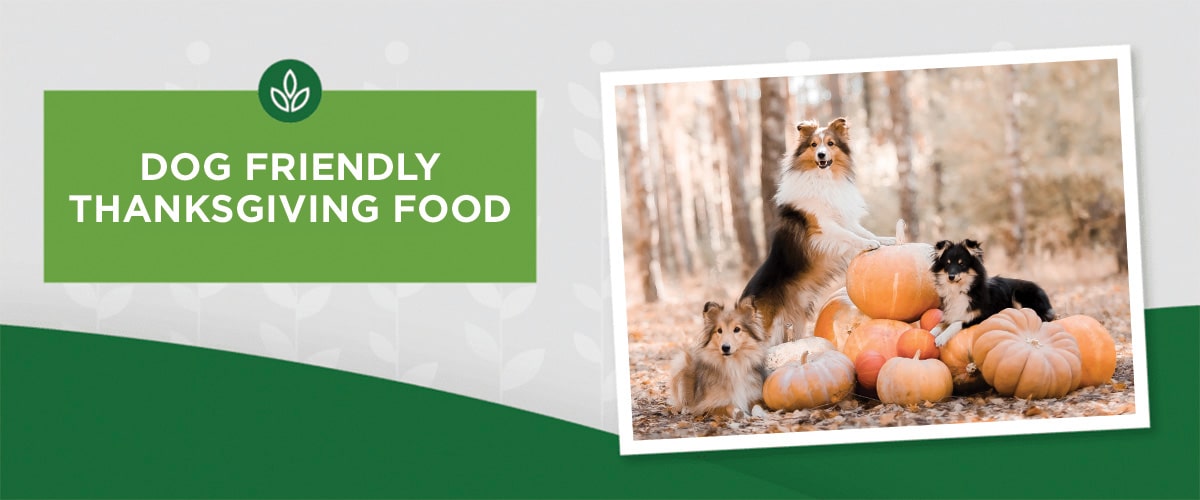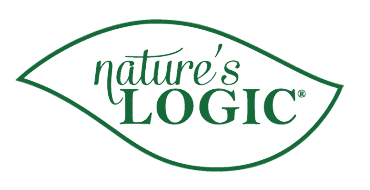Healthy Thanksgiving Food for Dogs
As Thanksgiving approaches it’s natural to want to include our beloved furry family members in the celebration. However, before sharing any Thanksgiving dishes with your dogs, it’s essential to know what’s safe for them to enjoy.
Spoiler alert – many of our traditional Thanksgiving foods include added salt, garlic, butter and other seasonings, which can be harmful to dogs. There are typical holiday foods our dogs can enjoy, but you’ll need to take extra care to prepare them in a safe way for your pup.
Common Thanksgiving Foods Dogs Can Eat
While incorporating a turkey dog kibble or turkey wet dog food into their diet is the simplest choice, it’s hard to resist the urge to give our four-legged friends a special treat from the table. Before doing so, it’s important to understand how best to prepare these holiday splurges for your dogs and it’s good to understand the nutritional benefits that go along with these typical Thanksgiving foods.
- Turkey: Plain, cooked turkey meat (without bones, skin, or seasoning) is generally considered to be safe for dogs. If you’re looking to feed your dog some Thanksgiving turkey, be sure to avoid seasoned turkey, especially with toxic ingredients like garlic and onions. Keep in mind that the turkey you’ll be serving to guests is likely seasoned and not considered a safe splurge for your pup.
- Benefit: High quality turkey is a good source of lean protein for dogs, supplying essential amino acids that support muscle health.
Plain Sweet Potatoes: Boiled or baked sweet potatoes, free from added sugar, spices, or marshmallows, can be an okay treat for dogs.
-
- Benefit: When prepared correctly, sweet potatoes offer dogs a nutrient-rich, low-fat source of dietary fiber and antioxidants, aiding digestion, immune health, weight management, and blood sugar regulation.
- Plain Green Beans: Plain, steamed or blanched green beans are a safe and healthy choice for dogs. Avoid seasoning green beans with butter, sauces, or additives.
- Benefit: Green beans are high in dietary fiber which supports digestion and helps regulate bowel movements.
- Pumpkin: Plain, canned pumpkin (not pumpkin pie filling) in moderation can be beneficial for dogs.
- Benefit: Pumpkin supports g digestive health.,
- Cranberries: Fresh or frozen cranberries in small amounts are generally considered safe for dogs. However, you’ll want to avoid cranberry sauce, which is often loaded with sugar.
- Benefit: Cranberries are rich in antioxidants and can support your dog’s urinary health.
- Apples: Sliced apples (without seeds, skin or the core) can be a healthy and crunchy snack for dogs.
- Benefit: Apples are low-calorie and supply essential vitamins and dietary fiber, supporting overall health.
- Carrots: Carrot sticks, or baby carrots are a crunchy treat that many dogs enjoy.
- Benefit: Carrots are a healthy and low-calorie snack for dogs, and they’re an excellent source of vitamins and fiber. Chewing on carrots can also help with dental health by reducing plaque buildup.
- Broccoli: Steamed or lightly cooked broccoli, cut into bite-sized pieces and given in moderation, is safe for dogs.
- Benefit: Broccoli supplies essential vitamins and minerals, including vitamin C and fiber, making it a healthy addition to your dog’s diet. Avoid feeding large quantities to prevent digestive upset.
- Artichoke: Artichoke hearts (the inner part of the artichoke) can be suitable for dogs when cooked and prepared without added seasonings. Canned or jarred artichoke hearts (in water, not oil or brine) can also be used, but ensure they are free from added spices or herbs.
- Benefit: Artichokes are a source of dietary fiber, aiding digestion and supporting gut health. They also have vitamins and antioxidants.
- Mushroom: Plain, white button mushrooms, when cooked, are generally considered safe, but give them in moderation.
- Benefit: Certain types of mushrooms, like the white button mushroom, can supply nutrients such as vitamins and minerals. They may have some health benefits, but they are not a necessary part of a dog’s diet.
Be sure to introduce new foods gradually, keep portion sizes small, consult your veterinarian before making significant dietary changes, and avoid harmful ingredients like garlic, onions, grapes, raisins, chocolate, chives, leeks, or anything with artificial sweeteners like xylitol when sharing Thanksgiving with your canine companion.
Safest Way to Include Thanksgiving Ingredients in Your Dog’s Diet
If you notice your dog has a real taste for Thanksgiving favorites and you’re considering making them a regular part of their year-round diet, there are safe and hassle-free ways to include these foods in their daily nutrition. Many of the ingredients mentioned above are included in various Nature’s Logic formulas. Browse our all natural, dog products that focus on whole, well-rounded nutrition to find out what products your dog will enjoy the most.
Enjoy Healthy, Thanksgiving Foods with Your Dog
When incorporating these Thanksgiving classics into your dog’s diet, it’s great to know you are sharing special moments and giving them enjoyable ingredients with powerful nutrients. Whether you’re interested in an all natural, specialized dog food or the joy of a shared holiday dish, you can create a delightful and health-conscious experience for your dog, year-round.






